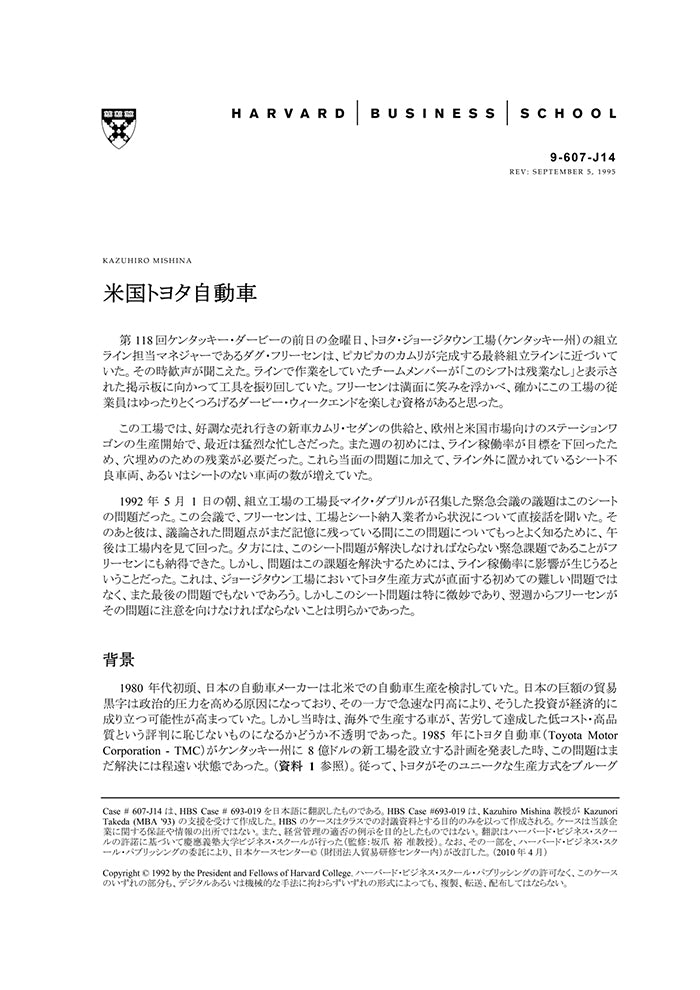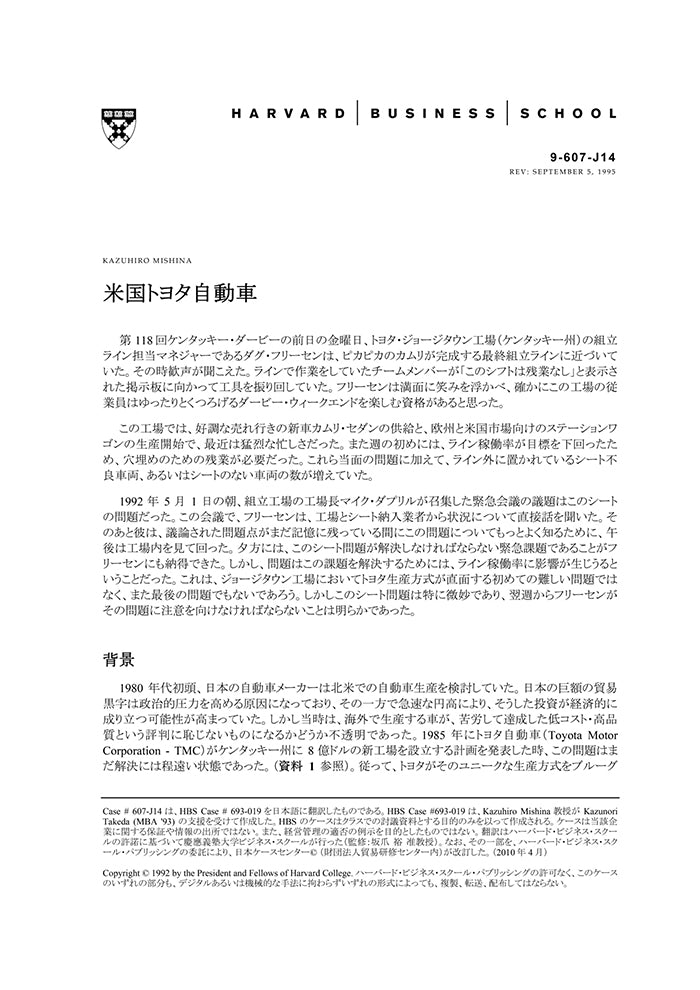米国トヨタ自動車
受取状況を読み込めませんでした
1992年5月1日、ケンタッキー州ジョージタウンにあるトヨタの工場の組立ライン担当マネジャー、ダグ・フリーゼンは、この工場の唯一の生産品目であるカムリに組付けるシートの問題に直面している。シートが不良、もしくはシートが組み付けられていない車両が、ライン横にどんどんたまっている。これは、最近の残業の一因ともなっているが、問題の原因や解決法を明らかにするのは容易ではない。この工場は、有名なトヨタ生産方式(TPS)を標榜しているので、フリーゼンは、できれば、TPSの考え方や手法を用いて、この問題を解決しようと考えた。学習者に、フリーゼンが取るべき行動を挙げさせ、ジョージタウン工場のシートの問題への現在の対応がTPSの理念にふさわしいものであるかどうかを分析させる。 On May 1, 1992, Doug Friesen, manager of assembly for Toyota's Georgetown, Kentucky, plant, faces a problem with the seats installed in the plant's sole product--Camrys. A growing number of cars are sitting off-line with defective seats or are missing them entirely. This situation is one of several causes of recent overtime, yet neither the reason for the problem nor a solution is readily apparent. As the plant is an exemplar of Toyota's famed production system (TPS), Friesen is determined that, if possible, the situation will be resolved using TPS principles and tools. Students are asked to suggest what action(s) Friesen should take and to analyze whether Georgetown's current handling of the seat problem fits within the TPS philosophy.
【書誌情報】
ページ数:23ページ
サイズ:A4
商品番号:HBSP-607J14
発行日:1992/9/8
登録日:2011/6/27


